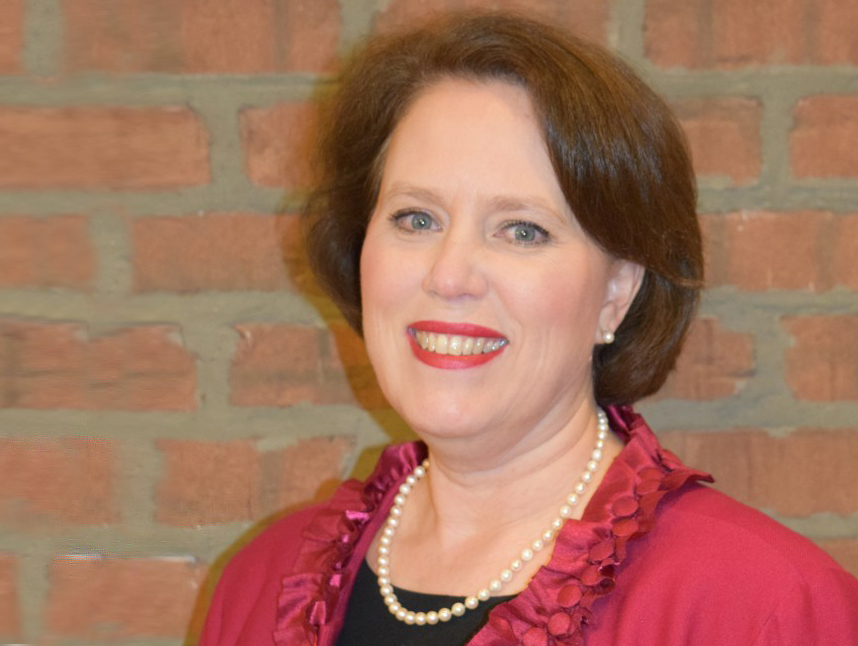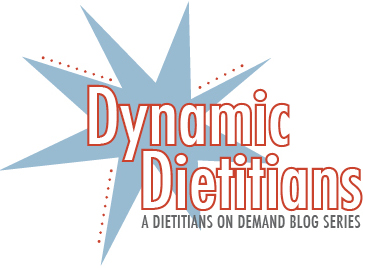Dynamic Dietitians, Professional Development, Staffing Tips for Success | Feb 1 2018
Dynamic eating disorder Dietitian: Leah Graves, RDN, LDN, CEDRD, FAED

We’re introducing you to #DynamicDietitians nationwide. You’ll be amazed at all the places you can find a dietitian, and remember, we can staff in any setting, too!
We’re excited to introduce Senior Director of Nutrition and Culinary Services, Leah Graves, RDN, LDN, CEDRD, FAED. Leah works at Veritas Collaborative, LLC in Durham, NC and travels to Richmond, Va., to train dietitians across various sites. Veritas Collaborative is a state-of-the-art eating disorders treatment facility.
How long have you been in the eating disorder field?
I have worked as a dietitian in the eating disorders field for the past 33 years.
How did you get into this area of dietetics?
I became interested in eating disorders during my first job, a ballet dancer. There were several dancers struggling with eating disorders in my company which ultimately cost them their career. I became curious wanting to understand why these brilliant, talented young people struggled with eating and body image concerns.
During my nutrition education and training, I had the opportunity to take specific coursework on eating disorders as well as to do a clinical rotation on an eating disorders unit. I chose the opportunity to gain understanding of these illnesses which had been so impactful in my dance career.
After graduation, I accepted a job with a hospital that was opening an eating disorder unit. Interestingly, my rotation yielded me the most experienced in treating eating disorders of all the dietitians, so I was assigned the eating disorders unit. I have been working with eating disorders exclusively since that time both clinically and in a leadership role.

What are some of your typical daily/weekly tasks?
Dietitians who work with eating disorder patients spend most of their time providing direct patient care. In this specialty, rapport with the patient and their family or community of support is critical. Thus, dietitians must learn a great deal about therapeutic interaction to best implement the nutrition care process.
Typical tasks include nutritional assessment, establishing nutrition diagnoses and recommendations for treatment, patient and family nutrition counseling, meal planning, coaching patients and their families during eating experiences, and individual and group nutrition education.
All professionals working with eating disorders provide care as part of a multidisciplinary team, so coordination of care with other disciplines is a significant part of the dietitian’s role.
What is the best part of working as a dietitian with eating disorder patients?
Eating disorder treatment works best when patients are treated with a strong multidisciplinary team for an adequate period of time. Assisting a patient to recover with the support of colleagues is the best part of working with eating disorder patients. The treatment and recovery process is one of the biggest challenges both patients and their families experience.
Patients often report discovering themselves during the recovery process and their families are touched to “get back” their family member as treatment progresses. In addition, the length of treatment for eating disorders is often significantly longer than dietitians experience in working with other illnesses, making the impact of this nutrition work rich and meaningful.
It is a privilege to assist these special individuals and families on their journey.
What are some challenges of working in this area?
The biggest challenge of working with persons with eating disorders is that the recovery trajectory is often lengthy and unpredictable. Steps forward with regression are common and can be difficult for patients, families and providers. Dietitians often need to be patient with slow rates of progress.
Another unique challenge is that some eating disorders are egosyntonic, which means that the person with the eating disorder views their illness as a positive part of their life and does not necessarily wish to change the eating pattern. These unique confounding factors are why dietitians who wish to work with the eating disorders population benefit from supervision with eating disorder experienced dietitians who support them learning to manage very complicated clinical scenarios.
What is something you get to do as an eating disorder dietitian that you wouldn’t get to do in other areas of nutrition?
As an Eating Disorder dietitian, I have the opportunity to work with many providers from a wide variety of disciplines across all levels of care. The role of the dietitian bridges the medical and psychological needs of the patient. As a result, dietitians are working with therapists, primary care medical providers, psychiatrists, nurses, educators, coaches and other professionals across a complete continuum of care from acute medical hospitals to the outpatient setting.
Dietitians are greatly respected in the eating disorders field. We are given a great deal of autonomy to use our nutrition therapy skills within a complicated treatment process, allowing us substantial professional growth.
What is a unique task, skill or piece of equipment you use to contribute to the care of your patients?
Dietitians working with eating disorders must develop clinical acumen in nutrition and also in evidence-based therapeutic modalities. Currently, dietitians need to have an understanding of how to insert nutrition care into a variety of therapies including Family-based Therapy, Dialectical Behavioral Therapy, Cognitive Behavioral Therapy and Acceptance and Commitment Therapy.
Dietitians are not asked to be a therapist, but to integrate nutrition practice into these techniques while remaining within our scope of practice. In addition, recent advancements in neuroscience are providing dietitians new science to apply our understanding of how nutrition integrates into the treatment process.
Why are you passionate about this area of dietetics?
Working with persons with eating disorders and their families is a calling for me. These illnesses are disruptive, debilitating, and deadly, but they do not have to be. Patients can recover with adequate quality care. Our field is fairly young and we are on the cusp of a much better grasp of what eating disorders are and how to best treat them.
I truly believe that I am working myself out of a job one case at a time, striving to better understand and treat this special group of individuals. I feel honored to have an opportunity to work with the eating disorders.

Did you know Dietitians On Demand can staff a registered dietitian in ANY setting nationwide? Whether you need an awesome CNSC like Sara for a temporary or permanent position, or an experienced renal dietitian like Frances, let our team do the recruiting and hiring for you!
Dietitians On Demand is the nationwide leader in staffing registered dietitians, specializing in short-term, temporary and permanent-hire positions. Our dietitians cover a vacancy, maternity leave, vacations, FMLA or increases in census. Check out our job openings, or request your coverage today!
Who we are
Dietitians On Demand is the nationwide leader in providing dietitians with jobs they love. If flexibility, competitive pay, a full benefits package, free CPEUs each month and a team dedicated to dietitians sound good to you, apply to our positions today.



